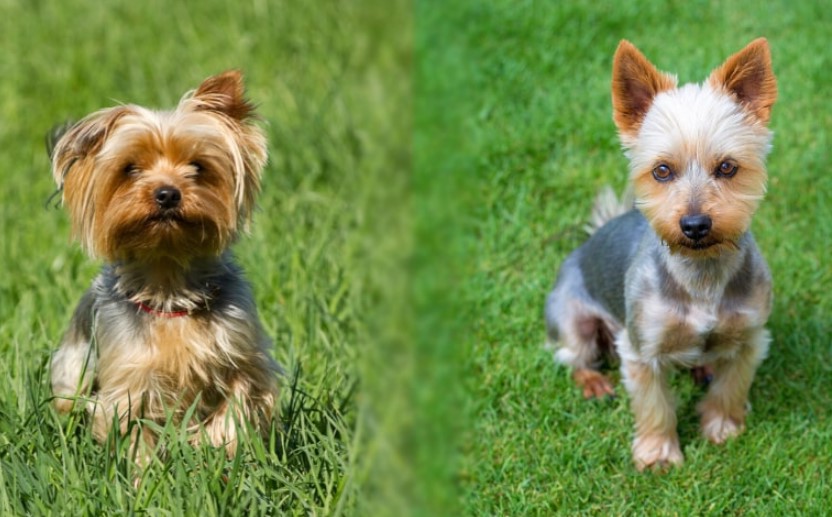In This Article
There are many similarities between the Yorkie and the Silky Terrier. The Silky’s hair is thick and long and grows profusely on its head.
However, unlike the Yorkie, its tail does not have a plume or waviness. Both breeds have the same amount of hair and make excellent pets for households with older children. The following comparisons may help you determine which one is best for your family.
Silky Terrier Vs Yorkie: A Detailed Comparison
Appearance: How Do They Differ?
Size and Build
Yorkshire Terriers, commonly known as Yorkies, typically weigh between 4 to 7 pounds and stand about 8 to 9 inches tall. In contrast, Silky Terriers are slightly larger, weighing around 8 to 10 pounds and standing approximately 9 to 10 inches tall.
Coat and Color
Both breeds boast long, silky coats. Yorkies are born with black and tan fur that often transitions to a blue and gold hue as they mature. Silky Terriers, on the other hand, typically have blue and tan coats with a silver overlay.
Facial Features
Yorkies possess a more domed skull with smaller eyes and ears that are set slightly lower on the head. Silky Terriers feature a wedge-shaped head with almond-shaped eyes and V-shaped ears set higher, giving them a distinctive alert expression.
Temperament: Which One Matches Your Personality?
Yorkshire Terrier
Yorkies are confident, intelligent, and adventurous. They form strong bonds with their families and can be protective, often exhibiting a feisty demeanor despite their small size. Early socialization is essential to manage their assertiveness.
Silky Terrier
Silkies are friendly, energetic, and curious. They enjoy companionship and can become anxious if left alone for extended periods. Their inquisitive nature means they thrive in environments where they can explore and engage in activities.
Grooming and Maintenance: What to Expect
Both breeds require regular grooming to maintain their luxurious coats. Daily brushing is recommended to prevent tangles and matting.
Regular baths and routine trims, especially around the face and ears, help keep them looking their best. Due to their low-shedding nature, they are often considered suitable for individuals with allergies.
Health: What Are Their Common Issues?
Both breeds are generally healthy but can be prone to specific health conditions:
- Yorkshire Terrier: Common concerns include patellar luxation, collapsed trachea, progressive retinal atrophy, and hypoglycemia.
- Silky Terrier: They may face issues such as Legg-Calvé-Perthes disease, epilepsy, and diabetes mellitus.
Regular veterinary check-ups and a balanced diet are crucial to ensure their well-being.
Which Breed Is Right for You?
Choosing between a Yorkie and a Silky Terrier depends on your lifestyle and preferences:
- Yorkshire Terrier: Ideal for those seeking a smaller companion with a bold personality. They adapt well to apartment living and are suitable for individuals or families without very young children.
- Silky Terrier: Better suited for active individuals or families who can provide ample exercise and mental stimulation. They thrive in environments where they aren’t left alone for long periods.
Both breeds offer unique qualities that can make them delightful companions. Understanding their distinct characteristics will help ensure a harmonious match for your household.



